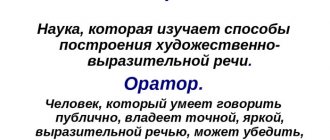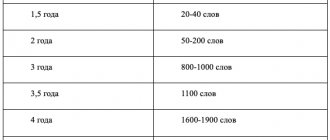The concept of legal rhetoric
Definition 1
Legal rhetoric is a set of skills and abilities of a lawyer in preparing and delivering a judicial speech, conducting conversations, advising clients, and participating in negotiations. Legal rhetoric is understood as methods of persuasion, various forms of linguistic influence on the audience to obtain the desired effect.
Rhetoric, or oratory, is a philological science about the art of public speaking in front of an audience, studying ways of constructing artistically expressive speech. A good speaker is distinguished by accuracy, clarity, purity of speech and extremely informative language. The practice of communication determines the subject of rhetoric as a theory of communicative activity.
Are you an expert in this subject area? We invite you to become the author of the Directory Working Conditions
The most well-studied and vibrant side of legal rhetoric is the analysis of texts of lawyer’s speeches and judge’s decisions. A large part of the subject of legal rhetoric is the process of preparing arguments, grounds, conclusions, and formalizing the characteristics of the content of the case for subsequent presentation in a lawyer’s speech or a court decision.
Legal rhetoric is closely interconnected with various branches of law and philology, and is an important applied section of scientific rhetoric. Legal rhetoric depends on the methodology and subject matter of the systematic discipline. Conviction is the subject of legal rhetoric in emerging legal relations.
As a scientific discipline, legal rhetoric explores the entire scope of problems associated with the preparation and provision of evaluative conclusions about legally significant facts in the process of their research and legal decision-making. Specific legal and philological approaches to the study of legal rhetoric are legitimate if they are consistent with the rhetorical method of research. The scientific methodology of legal rhetoric is closely related to the methodology of law and the general methodology of the humanities.
Finished works on a similar topic
Course work Legal rhetoric 480 ₽ Essay Legal rhetoric 230 ₽ Test paper Legal rhetoric 240 ₽
Receive completed work or specialist advice on your educational project Find out the cost
Judicial speech and its types
Definition 2
A judicial speech is a public speech addressed to all those present during the consideration of a civil or criminal case and participating in it, delivered in the courthouse and representing a statement of the lawyer’s conclusions in this case or his objections to other speakers.
The main purpose of judicial speech is to help persuade judges, to influence lay judges and jurors, as well as citizens present in the courtroom, in a reasoned and convincing manner. Judicial speech forms a “bridge” between the speaker’s understanding of the truth of the case and the upcoming court decision.
Types of judicial speeches:
- by purpose - speech in a civil or criminal case;
- for subjects of public speeches - speech of the state or public prosecutor, public defender, defense attorney, civil plaintiff and defendant, defensive speech of the defendant;
- by stages of legal proceedings - in criminal proceedings, speech is distinguished: at the stage of transferring the suspect to the court, at the trial, at the stage of execution of the sentence, at the trial, at the supervisory authority.
The subject of judicial speech is the act for which the defendant is held accountable. The material for judicial speech are circumstances related to a civil or criminal case, evidence and facts.
Topic 1. The concept and essence of judicial rhetoric. Judicial eloquence.
The diplomat, lawyer, teacher and preacher are concerned with essentially the same problem: how, within the framework of their activities, to master professional skills in such a way as to be rhetorically convincing, so that people would obey his speech. However, it is impossible to indicate a profession that would not be somehow related to speech, because every business requires verbal organization.
What should a good and effective speech be like? What are the difficulties of today's communication (from speech in the family to political and judicial speech)? Is it possible to learn to speak convincingly? Rhetoric is called upon to provide answers to these questions—the art of persuasive speech, the science of the expedient and effective construction of verbal communication. Rhetoric can also be defined as follows: rhetoric is a philological discipline that studies the relationship of thought to utterance. General rhetoric studies methods of correctly constructing argumentation.
Classic definitions of rhetoric. Let us turn to the classical definitions of rhetoric, especially since any such definition remains relevant and comparable to modern speech practice.
“Let us define rhetoric as the ability to find possible ways of persuasion regarding each given subject” (Aristotle. IV centuries BC). Every person tries to develop this ability, which is what the art of rhetoric serves, our desire to generalize both the experience of science and personal experience in order to know the methods and techniques of persuasion.
Aristotle defines the causes and qualities of three types of rhetoric, since there are as many kinds of listeners. Speech is composed of three elements: the speaker, the subject he is talking about, and the person he is addressing; this is the ultimate goal of everything (the listener). The listener is any simple spectator or a judge, and, moreover, a judge of either what has already happened or what can happen. An example of a person who argues about what is taking place is a member of a national assembly, and an example of someone who argues about what has already happened is a member of a court; a person who pays attention only to the speaker’s talent is a simple spectator.
Thus, there are three types of rhetorical speeches: deliberative, judicial and epideictic. deliberative speeches is to incline or reject, because people who have to deliberate in private life, like speakers who make speeches in public, do one of two things: either incline or reject.
As for judicial speeches, their job is to accuse or justify, because litigants always do one of two things: either accuse or justify themselves.
The task of epideictic speech is to praise or blame. As for the time that each of these types of speech refers to, a person, when conferring, has in mind the future: deviating from something or inclining towards something, he gives advice regarding the future.
A litigant deals with the past tense, because always regarding events that have already happened, one person accuses, and the other defends himself.
For the epideictic speaker, the present tense seems to be the most important, because everyone praises or criticizes.
Let us pay attention to the universality of rhetoric, which extends to many subjects.
“Rhetoric is an art that teaches the word to decorate and exhort (translated from Old Russian: “the art that teaches to decorate speech and persuade”). This is the definition of Nicholas Spafarius, the translator of the Ambassadorial Prikaz, made by him in 1672. It goes back to the classical ancient Roman understanding of rhetoric, recorded by the founders of European rhetoric Cicero and Quintilian: Rhetorics est ars recte et ornate dicendi -
Rhetoric is the art of speaking well and gracefully. This is where the term “eloquence” will develop in the future. Thus, we have come close to a direct understanding of what rhetoric is as an art.
The question of what is “decorated speech” and what is the true beauty of speech and whether all beautiful speech is convincing is a special question, which will be given special attention in this textbook.
“Rhetoric is the trick of speaking well” (the art of speaking and writing well. Old Believer rhetoric, manuscript from the end of the 17th century.). Although traditional rhetoric taught oral monologue, training always presupposed the ability to write speeches. “The pen is the best teacher of eloquence,” noted Cicero, discussing the difficulties of learning oratory. For rhetoric in law enforcement practice, our actual subject, technologies for preparing written speech are more than important.
“Eloquence is the art of speaking eloquently about any given matter and thereby inclining others to your opinion about it.” (M.V. Lomonosov “A Brief Guide to Eloquence” M., 1747.) I think the definition given by M.V. Lomonosov, most accurately and succinctly shows the main task of the speaker in judicial practice. “Whoever is skilled in this science is called a rhetorician” - this is the opinion of the Russian genius of the 18th century.
It is characteristic that the flowering of domestic rhetoric begins after the reforms of Alexander the Second. In particular, the judicial reform, which made the courts public, gives impetus to the development of oratory in legal proceedings.
“Eloquence is the ability to express one’s thoughts and feelings in writing or in words correctly, clearly and in accordance with the purpose of the speaker or writer” (A.F. Merzlyakov. Brief rhetoric, or rules relating to all types, composed of prose. M., 1804) . As we see, in rhetoric, not just speech expression is developed, but the expression through speech of “thoughts and feelings”, therefore special sections of science should be devoted to “ideas” or the content of speech, as well as the doctrine of “passions” or speech emotions. “The subject of rhetoric is speech. Speech is the oral or written expression of our thoughts in words or in writing.” (K.P. Zelenetsky. General rhetoric. Gymnasium course. St. Petersburg, 1850.). Imagine how large and voluminous the subject of science must be if it includes everything you talk or write about, everything you read or hear. That is, the subject of science is speech in all its diversity.
The content of rhetoric in the 20th century essentially did not change, but was enriched with new concepts and ideas, often presenting the well-forgotten old within the framework of new disciplines of speech culture, practical stylistics, and the psychology of communication of others.
In essence, the rhetoric of the late 20th century should restore (in a revised form) the “well forgotten old.” First of all, this is the study of the specifics of speech communication: how the rules of any speech are organized and what are the individual components of speech communication, in particular, judicial or other discussions. This is the subject of judicial rhetoric.
Naming (following Aristotle and Quintilian) three types of eloquence known in antiquity, M.V. Lomonosov noted that there was no judicial dissemination in Russia. Once again, it is necessary to recall that this was the case until the reform of 1864, which laid down new principles of legal proceedings. The hearing of cases became public, a prosecutor, a lawyer, and jurors (lay judges) were introduced into the process. The court became a place of public hearings, a field of verbal battles between prosecutors and defense attorneys. High-profile trials attracted a wide public to their hearings, and they began to be covered in the press. A galaxy of brilliant court speakers appeared, such as V.D. Spasovich, K.I. Arsenyev, K.F. Khartulari, F.N. Plevako, A.I. Urusov, P.A. Alexandrov, V.I. Zhukovsky, S.A. Andreevsky, P.Ya. Passover, N.P. Karabchevsky, A.F. Horses.
According to A.F. Horses, starting from the second half of the 19th century. Certain types of Russian prosecutor and Russian defender have emerged. The main features of the first are “calmness, the absence of personal bitterness against the defendant, the neatness of the prosecution’s methods, which is alien to arousing passions and distorting the data of the case, and, finally, and very importantly, the complete absence of hypocrisy in the voice, in the gesture and in the way one behaves in court.” .
Ideal defender A.F. Kony characterizes it as follows: “He is not a servant of his client and is not an accomplice in his desire to evade the well-deserved punishment of justice. He is a friend, he is an adviser to a person who, in his sincere conviction, is not guilty at all or is not at all guilty of what he is accused of.”
Judicial speech is intended to have a targeted and effective impact on the court, to contribute to the formation of the conviction of judges and citizens present in the courtroom. Typically, a prosecutor's (or accusatory) speech and a lawyer's (defender's) speech are distinguished. The judicial speeches of talented Russian lawyers are permeated with deep psychologism, as the speakers tried to influence the feelings of jurors and listeners. Currently, the evidentiary side of judicial speech is becoming much more important than psychological analysis.
A trial is a trial of a civil or criminal case, a study of all materials related to it, which takes place in an atmosphere of searching for the truth and a struggle of opinions between procedural opponents. Its ultimate goal is to deliver a lawful and justified verdict so that every person who commits a crime is given a fair punishment and no innocent person is prosecuted and convicted.
Find out, prove, convince - three interrelated functions that determine the form and content of judicial speech.
Rhetoric, like linguistics, belongs to the circle of semiotic sciences (see the works of V.N. Toprov, Yu.M. Lotman). Stylistics and speech culture are isolated and independently developing subsections of old rhetoric. The problems of a number of other disciplines, philological and non-philological, intersect with the problems of rhetoric. These are: the syntax of superphrasal unities and text linguistics, linguistic theory of expressiveness, linguistic theory of prose, but also logical sciences, especially modern non-classical logics, psycholinguistics, psychology of memory and emotions, etc.
The range of traditional rhetorical disciplines includes eristics, dialectics and sophistry. The disciplines of the non-rhetorical cycle include linguistic theory of argumentation, communication research, general semantics, structural poetics, literary text analysis within the framework of new criticism, etc.
The purpose of studying the course “Judicial Rhetoric” is to teach students of legal specialties to correctly express their thoughts, formulate conclusions on the substance of the issues under consideration, not be afraid to speak in front of an audience, command their attention, be able to convince them of the correctness of their arguments, know the optimal structure of a judicial defense and accusatory speech.
The study of judicial rhetoric gives future lawyers good prospects in legal practice, in particular, in conducting a particular case. A future lawyer, having studied judicial rhetoric, is able to master:
— any types of speech acts (preparing a report, giving lectures, participating in moot court proceedings, etc.);
- the ability to construct oral and written speech in a logical, reasoned and clear manner;
- skills in the active use of eloquence techniques, giving speech brightness and expressiveness, in order to improve one’s oratory skills;
- skills of correctly conducting a dispute or discussion;
- the ability to establish contact with any audience, taking into account its characteristics and interests, to improvise in any situation;
— the basics of bright and convincing performance in court and argumentation;
— knowledge about the structure of judicial speech;
— to convince and inspire confidence within the framework of judicial debate;
- techniques of persuasion and refutation of speech;
— standards for working with professional terms;
- the capabilities of your voice, speech technique: diction, strength and range of voice, breathing, intonation;
- non-verbal means of influence: gestures, facial expressions, posture of the speaker;
- the basics of correct construction of questions.
The prosecutor and lawyer speaking in court arguments are called judicial speakers.
The word orator was borrowed in the 18th century. from the Latin language (Latin orator – from orare – to speak, to expound). Its first meaning is “one who makes a speech,” “a person who makes a speech.” In this meaning, the word is used as a term: the prosecutor and lawyer, defending or challenging the rights of the plaintiff and defendant in civil proceedings and supporting the state prosecution or defending the rights of the defendant in criminal proceedings, perform their function in accordance with the procedural provisions in court proceedings. The role of the speaker in this understanding of the word comes down to performing actions provided for by procedural law: analyze, give a legal assessment.
The word orator has a second meaning: “one who has the gift of speaking, eloquence.” This is not only a speaking person, but a person who knows how to speak in front of an audience. He knows how to grab the listeners' attention because he is a master; he has the art of oratory; he loves his job. A speaker is a person who has deeply studied the topic of the speech, the materials of the case and is fluent in them; a person who can clearly and definitely formulate the thesis of a speech and draw up a work plan; a person who presents material logically, clearly, and convincingly.
Specifics of judicial speech
In order to be a good speaker, you need to know what public speaking is. Oratory is the creative activity of preparing and delivering a public speech. An activity based on a lot of hard work, as a result of which a person can master the ability to deliver a speech in front of an audience: speak logically, intelligibly, engagingly and convincingly. In the theory of public speech, oratory is understood as a complex of knowledge and skills of a speaker in preparing and delivering a public speech: this is the ability to formulate a thesis and select material, the art of constructing a speech and public speaking in order to have a certain impact on listeners; this is the ability to prove and disprove, the ability to convince; This is verbal skill. It should be noted that judicial oratory is very specific. It is also called judicial eloquence.
Eloquence in the general sense is the ability to speak not only beautifully, but also convincingly; it is a combination of talent and certain knowledge and skills.
Judicial eloquence has its own characteristics, its own specificity, which is determined by the norms of procedural legislation and presupposes the evaluative and legal nature of speech. The main function of judicial eloquence (or judicial oratory) is to help establish the legal truth in a case and to form the internal conviction of judges.
“Each speaker has his own speech tactics, style, oratorical techniques and speech means, tested and practiced. Some conquer the judicial audience with the power of their inspiration, like F.N. Plevako, others – with depth of thought and clarity of presentation, like A.F. Horses. But it is important for every judicial speaker to be able to speak clearly, competently, and with reason. This is the main thing” Ivakina N. N. Fundamentals of judicial eloquence (rhetoric for lawyers). Textbook, 2nd ed., 2007. P. 14.
The art of a judicial speaker is manifested in the ability to clearly define the topic of the dispute (thesis, target setting), to construct a judicial speech in such a way as to attract the attention of judges and keep it throughout the entire speech, in the ability to fully and objectively analyze the circumstances of the case, indicate the causes of a crime or civil conflict, give a deep psychological analysis of the personality of the defendant and the victim, build a system of refutations and evidence, draw the correct legal conclusions and convince judges and the audience of this.
It also manifests itself in the ability to exert a psychological impact, in the ability to find precise linguistic means for expressing thoughts, since a meaningful, valuable thought needs a perfect form. The perfection of speech creates an atmosphere of trust in the speaker in the court audience.
To speak well in court is to speak to the point, carefully, comprehensively and objectively analyzing the materials of the case, based on the rules of law; speak intelligibly, logically, convincingly, in accordance with the norms of the literary language.
Eloquence as “the ability to speak beautifully” is an integral part of judicial oratory - an effective means of emotional influence. Fine and expressive means of language help the judicial speaker to focus the attention of the court on certain details of the case.
The skill of a judicial speaker is based on constant hard, focused work. Only frequent practice and the desire to achieve mastery will lead to the ability to speak in public. In the art of judicial negotiation, to be able to speak means to be fluent in all the materials of the case, all the evidence, to feel the form of one’s speech, to understand its meaning, and to know the secrets of the orator’s profession. A clear, clear, impeccably reasoned presentation of one’s position is an important sign of a culture of public speaking.
The highest level of speech culture is speech mastery, which consists in the ability to clearly (intelligibly), logically and convincingly reveal thoughts, in the richness of the vocabulary and the variety of grammatical structures. It is important to convey information not only competently, but also expressively; not in cliched, boring words, but in its own, original, individualized way. Speech skill includes the ability to find the most accurate, which means the most suitable for a specific situation and stylistically justified means of language. Speech art also presupposes the ability to use rhetorical techniques that promote emotional and psychological impact.
In order for judicial speech to influence those around it, the people listening to it, it must have specific qualities, which are as follows.
1) Persuasiveness
The purpose of a judicial speech is to convince judges and jurors of the correctness of the speaker's position. Persuasive speech is a speech containing thoughts supported by facts and serious arguments; evidentiary. Important factors in the persuasiveness of a speech are the speaker’s conviction in the correctness of his position on the matter and the culture of his thinking. Conviction is a strong belief in the truth of something.
Persuasiveness is achieved by presenting arguments. An argument is one or more interconnected statements (judgments) intended to confirm the truth of the thesis. In civil and criminal proceedings, arguments are understood as judicial evidence: this is any factual data about circumstances that are important for the correct proceedings of criminal, civil, arbitration, and constitutional cases. The evidence is contained in testimony, physical evidence, expert opinions, protocols, etc. A distinction is made between direct and indirect evidence. Direct evidence is those from which one can draw an unambiguous conclusion (subject to its reliability) about the existence (or non-existence) of the fact being proven. Indirect evidence is that evidence from which, provided that it is reliable, one can make a presumptive conclusion about the existence of the fact being proven. All evidence is subject to requirements of relevance and admissibility.
The persuasiveness of a judicial speech largely depends on the quality of the arguments. Judges evaluate the correctness of the thoughts of the prosecutor and lawyer primarily by the degree of significance and value of the factual material. Only the strength of the arguments and their persuasiveness matter for the complete internal conviction of judges.
2) Clarity
The judicial speech must be understandable to all its listeners.
3) Clarity
Clarity is achieved by deep knowledge of the material, clear composition of speech, logical presentation, and persuasiveness of arguments.
4) Clarity (simplicity)
Simplicity of presentation ensures that the speech is easily understood and the thought of the judges follows without difficulty the thought of the speaker. However, simplicity and primitiveness should not be confused. Simplicity of speech involves the use of both complex syntactic structures and rhetorical techniques. A timely and appropriate comparison, a vivid metaphor, a rhetorical question, a phraseological unit enliven the speech and make it more intelligible.
5) Accuracy
Accuracy is a characteristic of the content of speech based on the relationship between speech and reality (this is factual, objective accuracy), the relationship between speech and thinking is conceptual, semantic accuracy, which depends on how much the speaker follows the meaning of the words used. Conceptual accuracy is the search for the word or expression that best matches the author's intent.
6) Logical
Logic at the level of the whole text is created by the composition of the speech and a number of logical techniques, the main of which are definition of the concept, explanation, description, comparison, analysis, synthesis, abstraction. Logic at the level of individual parts of judicial speech depends on how clearly and correctly the connection between individual statements and compositional parts is expressed.
7) Relevance
This is the correlation of linguistic means with the target setting, with the content of speech, the ability to construct it according to the topic, task, time, place and speaker.
Appropriate speech has the following characteristics:
— proportionality of linguistic means and content, i.e. words must accurately convey this or that content.
- correspondence of linguistic means to the situation.
— correspondence of linguistic means to the speaker.
9) Correctness
Correctness presupposes compliance with generally accepted norms of literary language.
10) Efficiency
11) Conciseness
Conciseness of speech is achieved by precise expression of thoughts, the presence of clear formulations, the absence of unnecessary words that do not carry information, the absence of verbosity and unnecessary, inappropriate thoughts. A common mistake is verbosity.
12) Brevity
The brevity of speech should be combined with its deep content, which is facilitated by emotionality and expressiveness.
13) Expressiveness, emotionality, expressiveness
The material of the judicial speech itself evokes emotions. The expressiveness of a speaker’s speech depends on the independence of his thinking, on his interest in what he is talking about; from the ability to control your speech; from the conscious intention to speak expressively. Expressive speech arouses interest among judges and citizens present in the courtroom and maintains interest in the subject of the conversation.
The creation of expressiveness, as well as emotionality, is served by linguistic means, with the help of which the speaker expresses an emotional-volitional attitude towards the subject of speech and thereby influences the emotions of jurors and citizens listening to the case. These are various visual and expressive means. However, each figurative and expressive means is appropriate in judicial speech in the case when it helps to strengthen the sound of the argument, as well as to express an important idea, from the point of view of the speaker, and convey it to the court, the defendant or the citizens present in the courtroom. The use of rhetorical techniques for the sake of embellishment and beauty of speech weakens its logical aspect and reduces its persuasiveness.
14) Individuality
A particularly valuable quality of public speech is individuality (originality) - the ability to speak about the most familiar facts in your own words, without using speech cliches. Cliches are stereotyped, often used in speech and boring words and expressions with semantics faded from frequent use. People use cliches thoughtlessly, out of habit, thereby depriving their speech of individuality.
Judicial speech comes in the following varieties:
· speech of the prosecutor in criminal cases in the court of first instance (accusatory speech)
· speech of a lawyer in criminal cases in the court of first instance (defensive speech and speeches of lawyers representing the victim, civil plaintiff and civil defendant)
· speech of the defendant in his own defense (self-defense speech)
Speech by the victim and his representative
· speeches of the civil plaintiff and civil defendant or their representatives (within the framework of a civil claim in criminal cases)
· speeches of the civil plaintiff and defendant, their representatives in civil cases
· speeches of the prosecutor and lawyer in civil cases in the court of first instance
· speeches of the prosecutor and lawyer in criminal and civil cases in the court of second instance
· speeches of public prosecutors and public defenders in criminal cases
· speeches of representatives of public organizations and labor collectives on civil matters
· remark as a special type of judicial speech
The judicial speech of a prosecutor and lawyer is a type of public speech that covers speech genres that are quite diverse in purpose and content: speeches at a meeting, debate, rally, report, scientific report, university lecture, monologue speech in court, etc. Public speech is of a reflections, comparisons; it examines, analyzes and evaluates the various points of view available on this issue, and formulates the position of the speaker. Each public speech aims to give listeners certain information, explain it, help them comprehend it and influence the listeners, shaping their worldview or point of view.
A specific type of public speech is a judicial monologue speech, delivered by the state prosecutor and defense attorney, representative of the plaintiff and defendant in judicial debates. Due to situational and thematic factors, it stands out somewhat differently: in terms of subject matter, and even more so in terms of purpose and semantic orientation, it differs from other genres of public speech. First of all, judicial speech is limited by the scope of use: it is an official, narrowly professional speech, pronounced only in court; its senders can only be a prosecutor and a lawyer, whose position is determined by their procedural position.
Every public speech includes a "subject" and a "material". An object is a certain side, a part of reality that the speaker characterizes; material is materials that give reason to speak specifically about the chosen subject. The subject of judicial speech is the case that is being considered in criminal and civil proceedings. Material – circumstances related to a specific incident, facts, evidence. The topic of a judicial speech is strictly limited to the materials of the case under consideration; the speech is more specific than any other public speech. An important feature of judicial speech is truthfulness (or objectivity), i.e. complete correspondence of the events being explained to objective truth. Exaggerations and fictitious episodes and unacceptable evidence are unacceptable in it.
Judicial speech is polemical, persuasive speech, since the main function of the parties in judicial debates is to prove, refute, and persuade.
The controversy can take place between procedural opponents, between lawyers defending different defendants. This could be a controversy with an expert who presented unfounded conclusions to the court.
Public speaking involves answering questions from listeners. In judicial speech this characteristic is absent due to procedural norms. A judicial speaker, conducting a polemic with a procedural opponent, usually foresees what they may disagree with him about, what they may ask him about. He himself formulates these questions and answers them, for example: They may object to me; I may be asked; you, dear jurors, may be told; others may disagree with me.
In order to form the conviction of the court, judicial speakers in civil and criminal proceedings carry out a comprehensive, complete and objective analysis of all the circumstances of the case and give them, first of all, a legal assessment. In criminal proceedings, the actions of the defendant are assessed from the point of view of law, as provided for by a certain article of the Criminal Code of the Russian Federation; circumstances that aggravate and mitigate liability are also assessed; reveal and evaluate the motives for committing a crime in order to assign a fair punishment.
In civil proceedings, the actions of the defendant are analyzed from a legal point of view to recognize the legality or illegality of a contested transaction, to recognize the violated right as subject to or not subject to restoration. All this serves to protect the disputed rights, freedoms and legitimate interests of citizens, organizations that have suffered from crimes, as well as to protect the individual from illegal and unfounded conviction, restrictions on his rights and freedoms. Thus, the evaluative-legal character is an important, most important feature of judicial speech.
Its next feature (feature) is the presence of four addressees. The speech of the prosecutor and lawyer is addressed primarily to the composition of the court. This is its main addressee in both criminal and civil proceedings. Each speech certainly begins with an address to the court: Dear judge, dear jurors. Due to procedural rules, the speaker cannot directly address those present in the courtroom. But he speaks both for the plaintiff and the defendant, and for the defendant in order to correct him, and for the citizens present in the courtroom in order to prevent offenses.
It is also necessary to note that judicial speech is both a dialogue and a monologue.
1. Judicial speech as a monologue
“A monologue in linguistics is defined on the basis of linguistic characteristics as a special form of stylistic construction in which the syntactic features of written and spoken literary language are intertwined. Monologue (from the Greek monos - one + logos - word, speech = speech of one) is a detailed statement by one person. This is organized speech, which requires a certain speech education and in which the impact is clearly manifested. Linguists consider the characteristic features of a public monologue to be the intentionality of the impact on the listeners and the intention.” Ivakina N. N. Fundamentals of judicial eloquence (rhetoric for lawyers). Textbook, 2nd ed., 2007.
The speech of participants in judicial debates reflects the peculiarities of the sphere of legal relations. Addressed primarily to the court, both accusatory and defensive speech is carried out in conditions of direct contact, is focused on establishing legal truth and is characterized by the presence of a plan, which in each case is determined by the characteristics of a particular criminal case.
In a criminal trial, a judicial speaker can define the plan as evidence of the guilt (innocence) of the defendant, or as a reclassification of the crime, or as the establishment of mitigating circumstances, or as a justification for the lack of proof of the criminal actions of the defendant.
The complexity of the issues covered not only presupposes a detailed, logical presentation of the case materials, but also requires, as was said, a system of convincing evidence. Evidence and argumentation are internal features of a judicial monologue, caused by its persuasive nature, and are manifested in the use of logical arguments, convincing facts, as well as in certain linguistic forms.
The design of a judicial speech requires such characteristics as the length of the speech segment, purposefulness, compositional organization, subject-semantic completeness, i.e. a comprehensive expression of an idea that allows for a response. A unique response to the speeches of judicial speakers is a well-founded, lawful judicial decision, in which reasoned, convincing speech is reflected in the qualification of a crime, in determining the penalty or recognizing civil relations as legal (or illegal).
Accusatory and defensive speeches, as well as speeches of representatives of the plaintiff and defendant in civil proceedings do not depend on each other; they are independent in semantic terms. Thus, to define a judicial speech as a monologue, it is accepted that it is addressed to the addressee in order to influence him, the presence of a plan, subject-semantic exhaustion, and independence.
2. Judicial speech as a dialogue
To deliver an interesting speech so that judges will listen to it, speakers need to constantly feel connected to the addressee and control his attention.
“Being a monologue in form, judicial speech forms part of the dialogue that takes place between the prosecutor and lawyer throughout the entire judicial investigation. The dialogue is manifested in the study of the case materials from the point of view of the prosecution and defense, from the point of view of representatives of the plaintiff and defendant, in the statement of motions. It ends in judicial debate, when the opinions of procedural opponents are finally determined and argued. The entire judicial speech unfolds not as a monologue, but as a dialogue with a procedural opponent. This is due to its purpose. A lawyer, arguing with the prosecutor, rejects his point of view as incorrect or agrees with it in some way.” Ivakina N. N. Fundamentals of judicial eloquence (rhetoric for lawyers). Textbook, 2nd ed., 2007.
Addressing the court, justifying a certain qualification of a particular circumstance makes it necessary to reproduce and evaluate (refute or accept) the opinions of the preliminary investigation bodies, the defendant, the victim, witnesses and lead to the dialogization of monologue speech, which is understood as an appeal to the court and the reproduction of someone else’s opinion in order to evidence, reflecting the features of oral conversational and everyday dialogical speech. For judicial negotiation, dialogization is, as already mentioned, an internal quality associated with its persuasive nature. Lawyers consider dialogism as the main feature of judicial speech.









